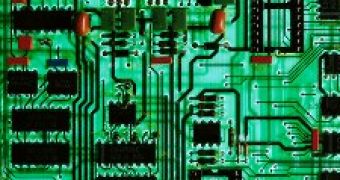Biocomputers are something that the scientific community has been droning on and on about for years, but the newest type of transistors may be taking things a bit further than anyone expected.
There isn't much of a roundabout way to say this, so we'll just throw it out there: some researchers from the Tel Aviv University created transistors out of human breast milk, mucus and blood.
Indeed, our bodily fluids have become the fuel for technological evolution. Now there really is a reason to consider that all those movies about technology “assimilating” human beings were on to something.
Seriously though, the people at the university used human bodily fluids, or the proteins in them to be more precise, to make biodegradable transistors.
Said transistors are silicon-free and even flexible, made by applying the bodily fluids to a base coating and then letting the whole thing dry.
The semiconductor film created through such a procedure has a thickness of a few nanometers and, by blending the three fluids in different proportions, can reach even 18nm.
“Together, the three different kinds of proteins create a complete circuit with electronic and optical capabilities, each bringing something unique to the table. Blood protein has the ability to absorb oxygen [...] which permits the 'doping' of semi-conductors with specific chemicals in order to create specific technological properties,” the researcher say.
“Milk proteins, known for their strength in difficult environments, form the fibers which are the building blocks of the transistors, while the mucosal proteins have the ability to keep red, green and, blue fluorescent dyes separate, together creating the white light emission that is necessary for advanced optics.”
The biodegradability stems from the fact that the proteins are completely organic. In other words, future machines won't be so hard to dispose of and won't damage the environment much at all.
The team made some transistors usable in displays, so far, but they hope to make entire electronic devices eventually.

 14 DAY TRIAL //
14 DAY TRIAL //